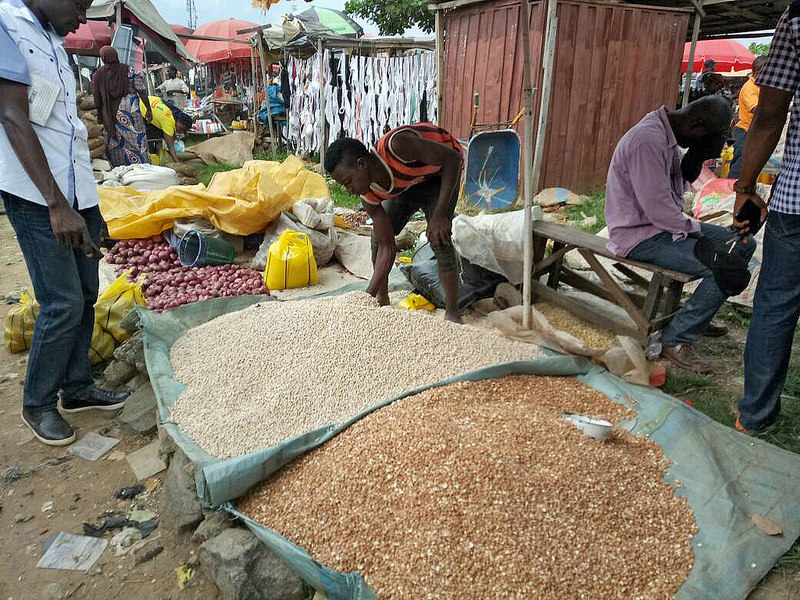After nearly a decade of research by its own scientists, Nigeria has approved its first genetically modified (GM) food crop — pest-resistant cowpea.
The National Biosafety Management Agency (NBMA) decision to allow the environmental release of GM cowpea affirms the crop’s safety. It also paves the way for commercializing GM cowpea and making the seeds available to farmers.
“Cowpea is the most important food grain legume in Nigeria,” said Prof. Ibrahim Abubakar, executive director of the Institute for Agricultural Research (IAR) at Ahmadu Bello University in Zaria, which led the research. “The low yield of the crop in Nigeria is due to many constraints, particularly pod boring insects, which cause up to 90 percent yield loss in severe infestation cases.”
Cowpea is an important source of protein for millions of Nigerians and others in West Africa. Farmers typically apply pesticides six or seven times within a planting season in an attempt to control the destructive pod borer (Maruca vitrata) pest. The GM cowpea, which provides built-in resistance to the insect, will significantly decrease pesticide use, researchers said.
It will also increase yields by about 20 percent, helping Nigeria to reduce its reliance on imports and achieve food security. Nigeria currently imports about 500,000 tonnes of cowpea annually to meet demand.

Both the pod borer-resistant (PBR) cowpea and GM cotton, which Nigeria commercialized last July, rely on a gene from Bacillus thuringiensis (Bt), a natural occurring, soil-borne bacteria long used in organic agriculture, to control certain insect pests. Nigerian scientists who introduced the Bt gene into local varieties of cowpea found it confers near complete protection against the pod borer.
Abubakar said scientists decided to venture into genetic modification in cowpea breeding because pest infestations had made cowpea farming difficult, economically unprofitable and even dangerous, as farmers were exposed to pesticide sprays.
Dr. Abdourhamane Issoufou, country director of the African Agricultural Technology Foundation (AATF), said Nigerian scientists worked with institutions in Ghana, Burkina Faso and Malawi to develop the Bt cowpea. Scientists in Ghana have completed field trials on PBR cowpea and will soon seek commercialization of the crop.
“Today, Nigeria stands tall in the comity of nations for effectively managing and bringing to fruition this dream,” Issoufou said.
Saidu Madagwa, executive secretary of the Agricultural Research Council of Nigeria (ARCN), which coordinates agricultural research in Nigeria, said the council was proud to present Nigerians with the first home-grown genetically modified food crop. He said it has passed all necessary scientific and safety tests.
Prof. Ishiyaku Mohammad, principal investigator in IAR’s cowpea project, explained that the GM cowpea is no different than conventional varieties. The only distinguishing factor is its resistance to Maruca infestation, he said. “The legume, which tastes just the same as its conventional counterpart, does not have any killer gene,” he said and farmers can replant the seeds if they wish.
Chief Daniel Okafor, vice president of All Farmers Association of Nigeria (AFAN), said the organization’s members are joyful at news of the approval. Farmers are willing and ready to adopt developmental technologies that reduce losses, increase yields and improve their livelihoods, he said.
Prof. Alex Akpa, acting director general of the National Agricultural Biotechnology Development Agency, said that with the approval, Nigeria “has registered her name among the global scientific community as a country capable of finding solutions to her challenges.”
